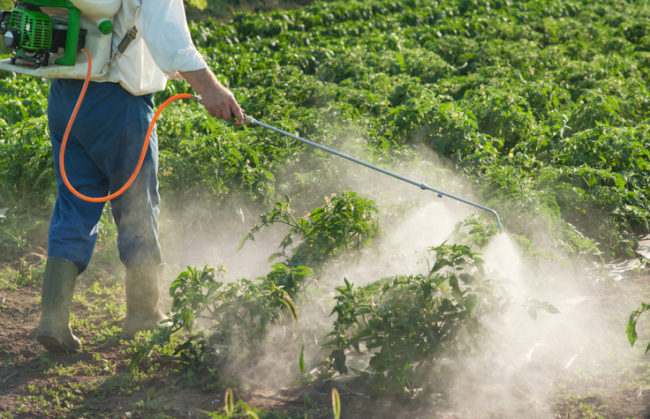Glyphosate is sprayed on more than 200 types of crops across four million acres in California, making it the most widely used herbicide in the state, according to the California Department of Pesticide Regulation. Globally, it’s available in hundreds of generic formulations from numerous companies, and accounts for 25 percent of all pesticide use worldwide. Glyphosate is a relatively simple molecule and breaks down easily. It works by targeting an enzyme found in plants, but not found in humans or animals. Last year, the US EPA again decided glyphosate was not a carcinogen.
However, this past summer, the State of California led the nation and moved to add glyphosate to a list of chemicals that it believes are linked to cancer. That designation under California’s Proposition 65 does not set rules on how glyphosate can be used, but instead will require a warning that products containing glyphosate are “known to the state of California to cause cancer and birth defects and other reproductive harm.”
Two weeks ago, on November 15, 2017, a coalition of a dozen national and Midwestern agricultural groups, including Monsanto Co., sued to try and overturn California’s decision. Monsanto produces Roundup, which contains glyphosate as its active ingredient. Other plaintiffs in the lawsuit include national wheat and corn growers associations and state agriculture and business organizations in Iowa, Missouri, North Dakota, and South Dakota.
The lawsuit filed in Eastern District of California federal court, seeks an injunction barring California from enforcing what the suit describes as a “false” and “misleading” warning. The lawsuit claims California’s decision violates constitutional due-process and free-speech rights and should be superseded by federal regulations. The suit also alleges the required warning would have an effect on food production across the country, as all companies that produce food that may be sold in California would have to add warning labels that could diminish demand for their products.
“Listing glyphosate falsely as a known carcinogen and requiring a warning that misleadingly states that California knows glyphosate is a carcinogen are not actions rationally related to any legitimate state interest,” the lawsuit states. The lawsuit also alleges that the listing violates the First Amendment because the warning mandate “compels speech that is factually controversial.”
Along with the issues presented by lawsuit itself, the case will likely provide for another opportunity for federal courts to weigh-in on the ability of California to set regulations that may have a national effect. A federal appeals court held last year that six states lacked standing to challenge a California law barring the sale of eggs from chickens not raised in accordance with California’s roomier cage-space requirements.

